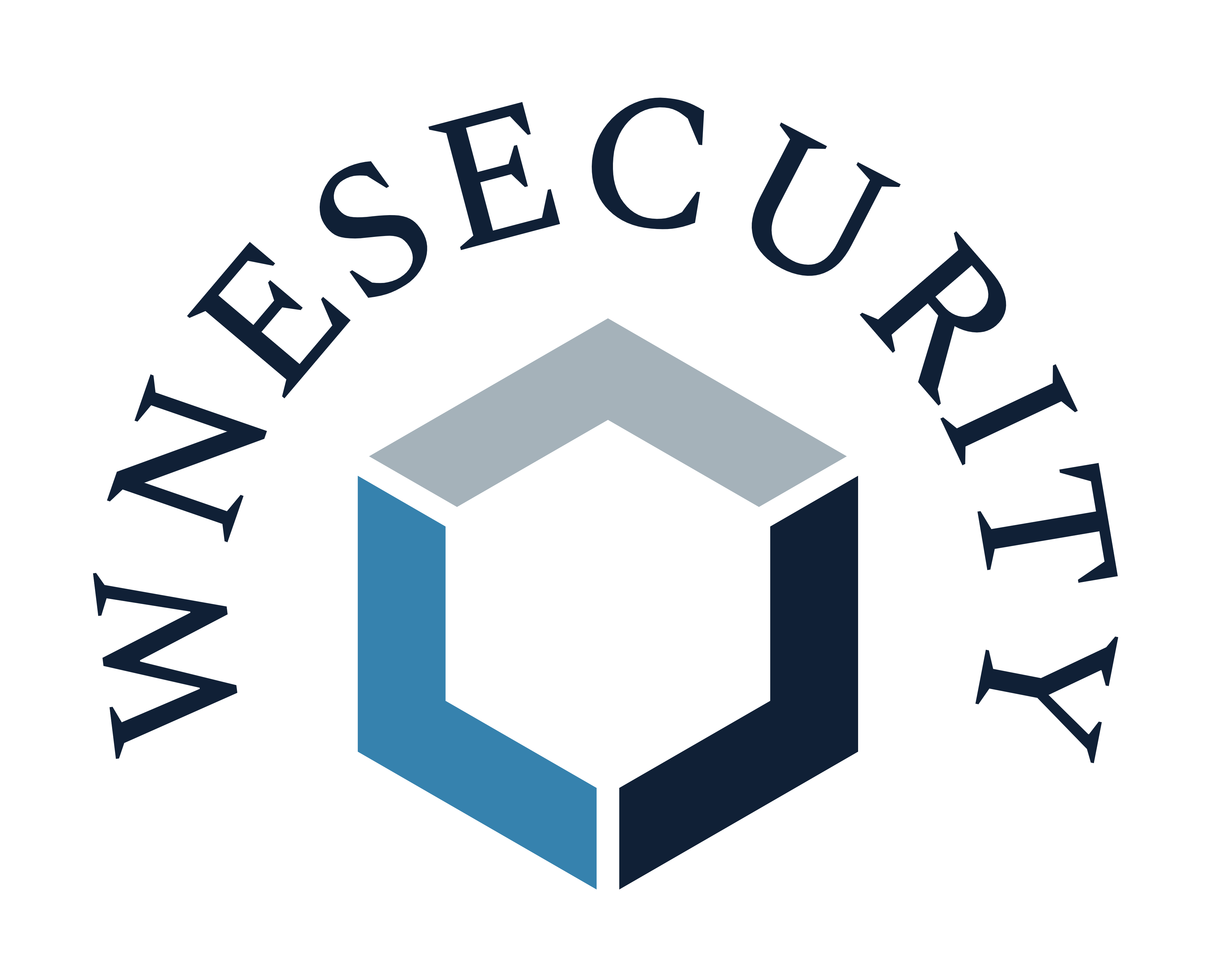WNE Security News
Read more about “Ethical Hacking and Bug Bounty Programs: Enhancing Cybersecurity” and the most important cybersecurity news to stay up to date with
Ethical Hacking and Bug Bounty Programs: Enhancing Cybersecurity

WNE Security Publisher
10/5/2024

Learn about Ethical Hacking and Bug Bounty Programs: Enhancing Cybersecurity and other new best practices and newly exploited vulnerabilities by subscribing to our newsletter.
Ethical Hacking and Bug Bounty Programs: A Deep Dive
In today’s digitally interconnected world, cyber threats are more sophisticated and widespread than ever. Organizations, regardless of their size, face constant challenges from hackers attempting to exploit vulnerabilities in their systems. To combat these risks, many companies have embraced ethical hacking and bug bounty programs as proactive measures to secure their networks and applications. This approach not only helps businesses identify vulnerabilities before they are exploited but also fosters a community-driven model of cybersecurity.
Ethical hacking and bug bounty programs may sound like recent trends, but they are grounded in long-standing principles of testing and securing systems. Ethical hackers, also known as “white hat” hackers, use their skills to uncover vulnerabilities with the intent of helping organizations fix them, rather than exploiting them for malicious purposes. In this article, we will explore the world of ethical hacking, the role of bug bounty programs, and how these initiatives are changing the landscape of cybersecurity.
What is Ethical Hacking?
Ethical hacking involves the deliberate and authorized testing of a company’s IT infrastructure, systems, and applications to identify potential vulnerabilities. Ethical hackers simulate cyberattacks to discover weaknesses that malicious hackers could exploit. By uncovering these vulnerabilities before they are used against the organization, ethical hackers help companies improve their defenses and prevent data breaches or other security incidents.
The primary difference between ethical hackers and malicious hackers (often referred to as “black hat” hackers) is intent. While both may use similar tools and techniques, ethical hackers operate with permission and within the boundaries set by the organization. Their goal is to improve security rather than compromise it.
Ethical hackers follow a structured approach, typically conducting penetration tests that mimic real-world attacks. These tests involve everything from probing for unpatched software vulnerabilities to social engineering attempts, such as phishing. In some cases, ethical hackers may also attempt to escalate privileges, exploit network weaknesses, or find ways to exfiltrate data to show where a company’s security posture can be improved.
Organizations often hire ethical hackers either as part of their internal security teams or through specialized cybersecurity firms. In some cases, they turn to bug bounty programs, which have become an increasingly popular method for tapping into the global pool of ethical hackers.
The Rise of Bug Bounty Programs
A bug bounty program is a structured initiative where organizations invite ethical hackers to find and report security vulnerabilities in exchange for rewards, usually in the form of monetary compensation. These programs offer businesses a scalable and cost-effective way to engage skilled hackers and receive feedback on their security posture. By opening up their systems to a broader audience of ethical hackers, companies benefit from the diverse expertise and creativity of people from around the world.
One of the earliest bug bounty programs was launched by Netscape in 1995, but it was not until companies like Google, Facebook, and Microsoft implemented their own programs that bug bounties gained widespread attention. Today, many organizations, from tech giants to government agencies, run bug bounty programs to strengthen their defenses.
Bug bounty platforms such as HackerOne and Bugcrowd facilitate the process by connecting organizations with a community of ethical hackers. These platforms offer a secure environment where hackers can submit vulnerability reports, communicate with security teams, and earn rewards based on the severity of the issues they discover.
Bug bounty programs typically offer rewards that vary depending on the criticality of the vulnerability. Minor bugs might earn a small payout, while critical vulnerabilities, such as those that allow remote code execution or data theft, can earn hackers significant sums, sometimes reaching tens of thousands of dollars.
Why Bug Bounty Programs are Essential
The rise of bug bounty programs highlights the shift in how organizations approach cybersecurity. Traditionally, security testing was done internally or through third-party penetration testing firms, which often limited the scope and expertise available to find vulnerabilities. Bug bounty programs, on the other hand, allow organizations to leverage a global network of talented hackers with diverse backgrounds and skill sets.
This broader approach offers several advantages:
Scalability: Bug bounty programs allow companies to scale their security testing efforts. Instead of relying on a small internal security team, organizations can benefit from the work of hundreds or even thousands of ethical hackers.
Cost-Effectiveness: While bug bounty programs do require financial incentives, they are often more cost-effective than hiring full-time staff or contracting expensive security firms. Companies only pay for the vulnerabilities that are found, making it a performance-based investment.
Uncovering Unique Vulnerabilities: Hackers participating in bug bounty programs often come from various backgrounds, bringing unique perspectives and techniques that may not be available in a typical security team. This diversity increases the likelihood of discovering novel attack vectors and overlooked weaknesses.
Continuous Security Testing: Unlike traditional penetration testing, which is often a one-off event, bug bounty programs run continuously. This means organizations are consistently testing their systems against the latest threats, ensuring that new vulnerabilities are caught quickly.
Implementing a Bug Bounty Program
For organizations considering launching a bug bounty program, careful planning and clear guidelines are essential. While bug bounty programs can significantly enhance security, they require a structured approach to be successful.
First, organizations need to define the scope of their program. Not all systems and applications may be open for testing. For example, a company may choose to include only its web applications in the scope while excluding internal networks or production systems that could be disrupted by testing. A clearly defined scope ensures that ethical hackers know where they are allowed to probe and prevents unintended consequences.
Next, the organization must create clear rules of engagement for participating hackers. This includes outlining what is considered fair game, how to submit vulnerabilities, and what the expected timelines for patching are. Transparency in communication helps build trust between the organization and the hackers, ensuring that the program runs smoothly.
Another critical component is the reward structure. Companies should establish fair compensation based on the severity of vulnerabilities. Offering competitive rewards ensures that hackers are incentivized to participate and provide quality findings.
Lastly, organizations must be prepared to respond quickly to reported vulnerabilities. A bug bounty program is only effective if vulnerabilities are addressed in a timely manner. Security teams should be ready to triage and prioritize incoming reports, patch vulnerabilities, and provide feedback to the participating hackers.
Ethical Hacking and Bug Bounties: The Broader Impact
The rise of ethical hacking and bug bounty programs has had a broader impact on the cybersecurity community and industry as a whole. For ethical hackers, these programs provide an opportunity to earn a living while doing meaningful work that contributes to improving global cybersecurity. Many ethical hackers participate in bug bounty programs as freelancers, working independently to uncover vulnerabilities across various companies and platforms.
For organizations, ethical hacking represents a more proactive approach to cybersecurity. Instead of waiting for breaches to occur, companies can identify and fix vulnerabilities before they are exploited by malicious actors. This shift towards proactive security, driven by ethical hackers and bug bounty programs, is helping to make the internet a safer place.
Additionally, bug bounty programs contribute to transparency and collaboration in cybersecurity. By inviting external hackers to test their systems, organizations demonstrate a commitment to security and transparency. This open approach to security can enhance an organization’s reputation and build trust with customers and stakeholders.
Ethical hacking and bug bounty programs have become integral to modern cybersecurity strategies. As cyber threats continue to evolve, organizations can no longer rely solely on internal security teams or traditional testing methods. By leveraging the expertise of ethical hackers through bug bounty programs, companies can stay ahead of potential threats and improve their overall security posture.
These initiatives benefit not only the organizations that run them but also the broader cybersecurity community. Ethical hackers gain opportunities to hone their skills and contribute to global cybersecurity efforts, while businesses gain access to a wealth of knowledge and creativity in their fight against cyberattacks. As the digital landscape continues to expand, ethical hacking and bug bounty programs will undoubtedly play an even more significant role in securing our future.
Learn more about WNE Security products and services that can help keep you cyber safe.
Learn about Ethical Hacking and Bug Bounty Programs: Enhancing Cybersecurity and other new best practices and newly exploited vulnerabilities by subscribing to our newsletter.
Subscribe to WNE Security’s newsletter for the latest cybersecurity best practices, 0-days, and breaking news. Or learn more about “Ethical Hacking and Bug Bounty Programs: Enhancing Cybersecurity” by clicking the links below



